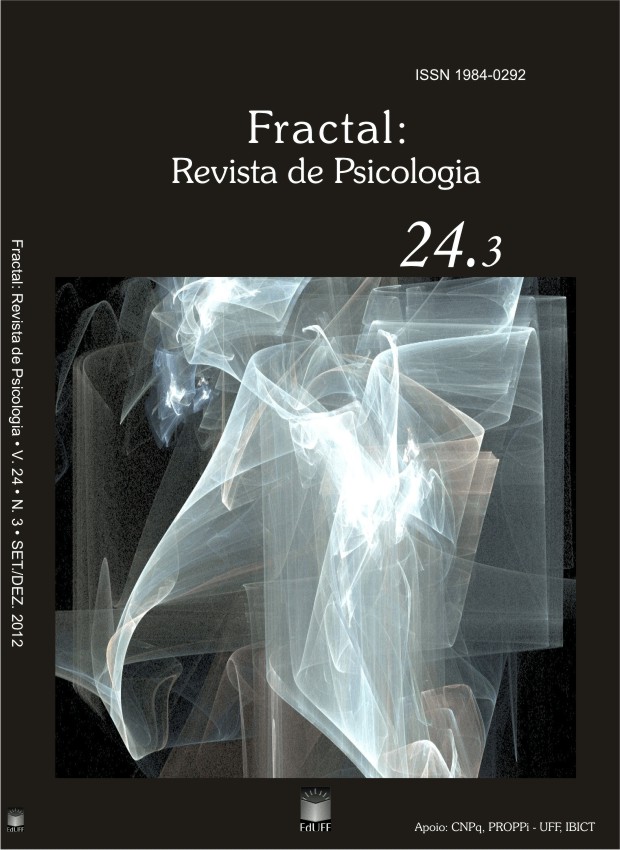Spinoza et la question éthico-sociale du désir: études comparatives avec Epicure-Lucrece et Machiavel
Palabras clave:
desir, plaisir, prudenceResumen
“Épicure, Démocrite, Lucrèce” (dans la lettre 56 à Hugo Boxel) et “Machiavel” (dans le Traité politique) sont les deux courants de pensée que Spinoza (1966[1674], 2002[1677]), cite de manière très élogieuse. Nous nous proposons d’étudier ici – selon une analyse comparative et à partir de la question éthico-sociale du Désir – les filiations et les différences de la philosophie spinoziste avec la pensée épicurienne et la pensée de Machiavel.Descargas
Citas
BOVE, L. Épicurisme et spinozisme: l’éthique. Archives de Philosophie, Paris, t. 57, cahier 3, p. 471-484, juil.-sept. 1994.
BOVE, L. Enseignement du Christ et résistance dans le Traité Théologico-Politique de Spinoza. In: GROS, G. (Org.). La Bible et ses raisons. Saint-Étienne, France: Université de Saint-Étienne, 1996. p. 211-236. Ouvrage collectif de l’UPRES-A 5037.
BOVE, L. (Éd.) Une ontologie politique de la durée: Spinoza lecteur de Machiavel. In: Introduction: De la prudence des corps. Du physique au politique. In: Spinoza, Traité Politique. Paris: Librairie générale française, 2002. p. 31-46. Collection Le Livre de Poche.
BOVE, L. Potêntia e prudêntia de uma vida como singularidade em Espinoza. In: ______. Espinoza e a psicologia social, Ensaios de ontologia politica e antropogênese. Belo Horizonte: Autêntica, 2010. p. 63-76.
BOVE, L. Dall’innata potestas alle strategie del conatus, o l’epicureismo in moto perpetuo. In: DEL LUCCHESE, F.; MORFINO, V.; MORMINO, G. (Cur.). Lucrezio e la modernità. I secoli XV-XVII. Napoli: Bibliopolis, 2011. p. 163-178.
BOVE, L. La Stratégie du conatus: affirmation et résistance chez Spinoza (1996). Paris: Vrin, 2012.
BROCHARD, V. La théorie du plaisir d’après Épicure. In: ______. Études de philosophie ancienne et de philosophie moderne. Paris: Vrin, 1912. p. 252-293.
CESAR, J. La guerre civile. Texte établi et trad. par Pierre Fabre. Paris: Les Belles Lettres, 1997.
COMTE-SPONVILLE, A. Le mythe d’Icare: traité du désespoir et de la Béatitude. Paris: PUF, 1984.
DELEUZE, G. Lucrèce et le simulacre. In: ______. Logique du Sens. Paris: Minuit, 1969.
ÉPICURE. Lettres et Maximes. Trad. par Marcel Conche. Paris: PUF, 1992.
GUYAU, J. M. La morale d’Épicure et ses rapports avec les doctrines contemporaines. Paris: Alcan, 1886.
LAERCE, D. Vie, Doctrines et Sentences des Philosophes Illustres. Paris: Garnier-Flammarion, 1965. t. II, X, 31, p. 264.
LUCRÈCE, C. De la Nature II, 60. Trad. par H. Clouard. Paris: Garnier-Flammarion, 1964.
MACHIAVEL, N. De la principauté civile. In: Le Prince. In: BARINCOU, E. (Ed.). Machiavel: Oeuvres complètes. Paris: Gallimard, 1952a. Collection: Bibliothèque de la Pléiade.
MACHIAVEL, N. Discours sur la première décade de Tite-Live. In: BARINCOU, E. (Ed.). Machiavel: Oeuvres complètes. Paris: Gallimard, 1952b. Collection: Bibliothèque de la Pléiade. Livre I, ch. IV.
MACHIAVEL, N. Il Principe. Milano: Biblioteca Universale Rizzoli, 1994. Series Classici della Bur.
MACHIAVEL, N. Discorsi sopra la prima deca di Tito Livio. Milano: Biblioteca Universale Rizzoli, 1996. Series Classici della Bur.
MATHERON, A. Spinoza et la sexualité. In: ______. Anthropologie et Politique au XVIIe siècle: études sur Spinoza. Paris: Vrin, 1986a. p. 209-230. Texte republié dans Alexandre Matheron, Études sur Spinoza et les philosophies classiques, ENS Éditions p. 305-324.
MATHERON, A. L’anthropologie spinoziste? In: ______. Anthropologie et Politique au XVIIe siècle: études sur Spinoza. Paris: Vrin, 1986b. p. 175-185. (étude republiée dans Études sur Spinoza, p. 15-24).
MATHERON, A. Spinoza et la décomposition de la Politique thomiste: Machiavélisme et Utopie. In: ______. Anthropologie et Politique au XVIIe siècle: études sur Spinoza. Paris: Vrin, 1986c. p. 49-79. (étude republiée dans Études sur Spinoza, p. 81-111).
SPINOZA, B. Ép. 56 à H. Boxel (1674). Oeuvres IV: Traité politique, Lettres. Trad. Charles Appuhn. Paris: GF Flammarion, 1966.
SPINOZA, B. Oeuvres III: Éthique. Trad. Charles Appuhn. Paris: GF Flammarion, 1993.
SPINOZA, B. Traité politique (1677). Trad. Emile Saisset revisée par Laurent Bove. Paris: Le Livre de Poche, 2002.
SPINOZA, B. Oeuvres III: Traité théologico-politique (1670). Trad. Jacqueline Lagrée et Pierre-François Moreau. Paris: PUF, 2009.
TITE-LIVE. Histoire Romaine. Texte établi et trad. Paul Jal. Paris: Les Belles Lettres, 2005.
VIRGILE. Bucoliques. Texte établi et trad. par E. de Saint-Denis. Paris: Les Belles Lettres, 1949.
##submission.downloads##
Publicado
Cómo citar
Número
Sección
Licencia
Autores que publicam nesta revista concordam com os seguintes termos:
- Autores mantém os direitos autorais e concedem à revista o direito de primeira publicação, com o trabalho simultaneamente licenciado sob a Creative Commons Attribution License que permitindo o compartilhamento do trabalho com reconhecimento da autoria do trabalho e publicação inicial nesta revista.
- Autores têm autorização para assumir contratos adicionais separadamente, para distribuição não-exclusiva da versão do trabalho publicada nesta revista (ex.: publicar em repositório institucional ou como capítulo de livro), com reconhecimento de autoria e publicação inicial nesta revista.

This work is licensed under a Creative Commons Attribution 4.0 International License.

Na medida do possível segundo a lei, a Fractal: Revista de Psicologia renunciou a todos os direitos autorais e direitos conexos às Listas de referência em artigos de pesquisa. Este trabalho é publicado em: Brasil.
To the extent possible under law, Fractal: Revista de Psicologia has waived all copyright and related or neighboring rights to Reference lists in research articles. This work is published from: Brasil.






